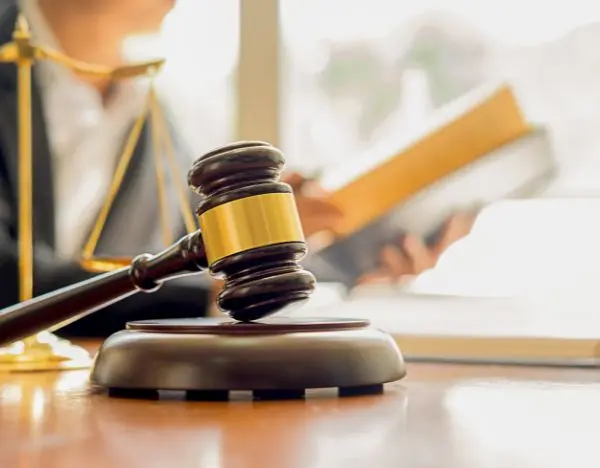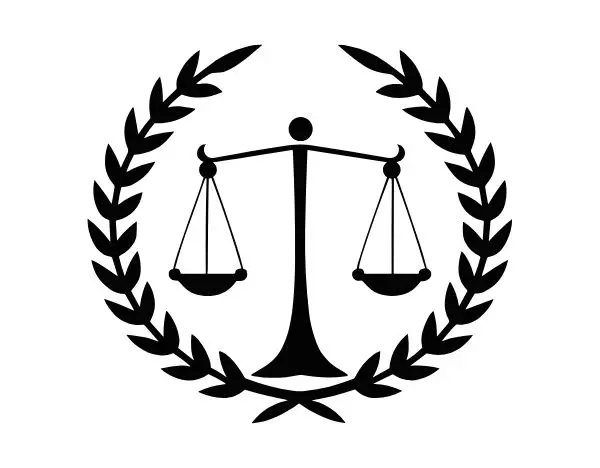What is a DWAI in Buffalo, NY?

When navigating the complex landscape of alcohol-related driving offenses in Buffalo, New York, understanding the distinction between various charges becomes crucial for anyone facing such allegations. At Trbovich Law Firm, we regularly assist clients in comprehending these nuances, particularly regarding DWAI charges, which differ significantly from standard DWI offenses in both definition and consequences.
What is a DWAI in Buffalo, NY?
DWAI stands for "Driving While Ability Impaired," and it represents a distinct legal category in New York State's graduated system of alcohol and drug-related driving offenses. In Buffalo, as throughout New York State, a DWAI specifically refers to operating a motor vehicle while your ability to drive is impaired by alcohol or drugs, but to a lesser degree than would constitute a full DWI (Driving While Intoxicated) charge.
The key distinction between DWAI and DWI lies in the level of impairment and the corresponding blood alcohol concentration (BAC). While a DWI requires a BAC of 0.08% or higher, a DWAI-Alcohol can be charged when your BAC falls between 0.05% and 0.07%, or even with a lower BAC if there's other evidence that alcohol has affected your driving ability.
Types of DWAI Charges in Buffalo

In Buffalo courts, you might encounter several variations of DWAI charges:
DWAI-Alcohol
This is the most common form of DWAI, charged when a driver's ability is impaired by alcohol consumption. It typically involves a BAC between 0.05% and 0.07%, though it can be charged with lower levels if there's sufficient evidence of impairment through field sobriety tests and officer observations.
DWAI-Drugs
This charge applies when impairment stems from drug use rather than alcohol. Unlike with alcohol, there's no specific concentration threshold for drugs in your system—the prosecution need only demonstrate that your ability to drive was impaired by the influence of a drug, which can include illegal substances, prescription medications, or even over-the-counter drugs.
DWAI-Combination
This more serious charge occurs when a combination of both alcohol and drugs impairs a driver. The synergistic effect of multiple substances often results in greater impairment than either substance alone, making this charge particularly concerning in the eyes of Buffalo law enforcement and prosecutors.
How DWAI Differs from DWI in Buffalo
Understanding the distinction between DWAI and DWI is crucial for anyone navigating the legal system in Buffalo:
Legal Threshold
The primary legal difference lies in the BAC threshold: while DWI requires a BAC of 0.08% or higher, DWAI-Alcohol typically involves a BAC between 0.05% and 0.07%. This lower threshold means you can face a DWAI charge even after consuming a relatively modest amount of alcohol.
Classification
In New York State, including Buffalo, a first-offense DWAI-Alcohol is classified as a traffic infraction rather than a criminal misdemeanor like a DWI. However, DWAI-Drugs and DWAI-Combination are classified as misdemeanors even on first offense.
Evidence Standards
For DWAI cases, Buffalo prosecutors must demonstrate that your ability to drive was impaired "to any extent." This is a lower standard than for DWI, which requires proving substantial impairment. This distinction means that even slight impairment observed by law enforcement can potentially lead to a DWAI charge.
DWAI Penalties in Buffalo
While DWAI-Alcohol may be a lesser charge than DWI, the consequences remain significant:
First Offense DWAI-Alcohol
- Fine: $300 to $500
- Jail: Up to 15 days
- License Suspension: 90 days
- Surcharge: $260
Second Offense DWAI-Alcohol (Within 5 Years)
- Fine: $500 to $750
- Jail: Up to 30 days
- License Suspension: 6 months
- Surcharge: $260
Third or Subsequent Offense DWAI-Alcohol (Within 10 Years)
- Fine: $750 to $1,500
- Jail: Up to 180 days
- License Suspension: 6 months
- Surcharge: $400
For DWAI-Drugs or DWAI-Combination, the penalties align more closely with those for DWI:
First Offense DWAI-Drugs or DWAI-Combination
- Fine: $500 to $1,000
- Jail: Up to 1 year
- License Suspension: 6 months
- Surcharge: $395
Second Offense DWAI-Drugs or DWAI-Combination (Within 5 Years)
Classification: Class E Felony
- Fine: $1,000 to $5,000
- Jail: Up to 4 years
- License Revocation: Minimum 1 year
These penalties represent just the direct legal consequences. Additional impacts may include:
- Mandatory attendance at a Victim Impact Panel
- Potential requirement to attend a substance abuse program
- Significant insurance premium increases
- Installation of an ignition interlock device (for repeat offenders)
- Employment consequences, particularly for jobs requiring driving
How Buffalo Law Enforcement Detects DWAI
In Buffalo, law enforcement typically identifies potential DWAI cases through:
Traffic Stops
Officers may initiate stops based on observed traffic violations or erratic driving patterns such as weaving, inconsistent speed, or delayed responses to traffic signals. Even minor traffic infractions can lead to a DWAI investigation if the officer notices signs of impairment during the interaction.
Field Sobriety Tests
Once stopped, Buffalo police officers may administer standardized field sobriety tests, including:
- Horizontal gaze nystagmus test (following an object with your eyes)
- Walk-and-turn test
- One-leg stand test
These tests assess physical coordination and cognitive function, with performance failures potentially establishing probable cause for arrest.
Preliminary Breath Tests
Portable breath testing devices provide an initial BAC reading. Results in the 0.05%-0.07% range typically suggest a DWAI charge rather than a DWI, though this preliminary reading is often followed by more accurate testing at the police station.
Chemical Testing
After arrest, more precise chemical testing—typically breath, blood, or urine analysis—determines exact BAC or the presence of drugs. For DWAI-Alcohol cases in Buffalo, results showing a BAC between 0.05% and 0.07% generally substantiate the charge.
Defenses for DWAI Charges in Buffalo
Several defense strategies may be applicable to DWAI charges in Buffalo:
Challenging the Traffic Stop
If law enforcement lacked reasonable suspicion to initiate the traffic stop, evidence obtained afterward may be inadmissible. This can sometimes lead to case dismissal.
Questioning Field Sobriety Test Administration
Field sobriety tests must be administered according to standardized protocols. Factors such as weather conditions, physical disabilities, footwear, or improper test instructions can affect performance and provide grounds for challenging the results.
Scrutinizing BAC Testing Procedures
Breath testing equipment requires proper calibration and administration. Technical issues, maintenance failures, or procedural errors may compromise test accuracy and provide defense opportunities.
Medical Conditions and Diet
Certain medical conditions like GERD, acid reflux, or diabetes can affect breath test results. Similarly, some diets and substances like bread products or mouthwash can create mouth alcohol that inflates BAC readings.
Rising BAC Defense
Since alcohol takes time to absorb into the bloodstream, your BAC might have been below the legal threshold while driving but increased by the time testing occurred. This "rising BAC" defense can be particularly relevant in DWAI cases where the BAC threshold is lower.
How DWAI Charges Progress Through Buffalo Courts
Understanding the legal process for DWAI cases in Buffalo helps defendants prepare appropriately:
Arraignment
Your first court appearance in Buffalo City Court involves formal presentation of charges, plea entry, and bail determination if applicable. This typically occurs shortly after arrest.
Pre-Trial Proceedings
This phase includes discovery (evidence exchange), potential motion filing, and plea negotiations. For DWAI cases, prosecutors may sometimes offer plea reductions from higher charges like DWI.
Potential Hearings
Your case may involve specific hearings, such as:
- Refusal hearings (if you declined chemical testing)
- Suppression hearings (to determine admissibility of evidence)
- Probable cause hearings (evaluating the legal basis for arrest)
Trial or Plea Resolution
While most DWAI cases resolve through plea agreements, you maintain the right to a trial where the prosecution must prove all elements of the offense beyond a reasonable doubt.
Sentencing
If convicted or after pleading guilty, the court imposes penalties according to offense level and prior history, potentially including fines, license suspension, and in some cases, jail time.
Special DWAI Considerations for Buffalo Drivers
Several factors particular to Buffalo may affect DWAI cases:
Winter Weather Conditions
Buffalo's notorious winter weather can complicate field sobriety testing, sometimes providing defense arguments about test reliability in adverse conditions.
Border-Crossing
Buffalo's proximity to the Canadian border means a DWAI conviction can potentially affect border-crossing abilities, an important consideration for those who regularly travel between countries.
Local Enforcement Patterns
Certain areas of Buffalo see more concentrated DWI/DWAI enforcement, particularly around entertainment districts, during major events, or near university areas.
DWAI Impact on Different Driver Categories
The consequences of a DWAI conviction vary significantly depending on your driving status:
Young Drivers (Under 21)
For drivers under 21, New York's Zero Tolerance Law means even lower thresholds apply—a BAC of just 0.02% can trigger a finding of "driving after having consumed alcohol," with administrative penalties including license suspension for one year and fines.
Commercial Drivers
CDL holders face particularly severe consequences for DWAI convictions, with potential disqualification from commercial driving for multiple years, even when the offense occurs in a personal vehicle.
Out-of-State Drivers
Visitors charged with DWAI in Buffalo may face both New York penalties and additional consequences in their home state through interstate compacts that share driving violation information.
Non-Legal Consequences of DWAI in Buffalo
Beyond direct legal penalties, a DWAI conviction carries additional impacts:
Insurance Implications
Even a first-offense DWAI typically triggers significant insurance premium increases, often by 20-30% or more, lasting for several years.
Employment Effects
Jobs requiring driving or professional licenses may be jeopardized by a DWAI conviction, and future employment opportunities could be limited if background checks reveal the offense.
Professional Licensing
Certain professions—including healthcare, education, and legal fields—have licensing requirements that may be affected by DWAI convictions, potentially requiring disclosure and review by licensing boards.
Steps to Take If Charged with DWAI in Buffalo
At Trbovich Law Firm, we understand that facing a DWAI charge in Buffalo can be overwhelming and confusing, especially when you're unsure about what immediate actions to take. The steps you take in the hours, days, and weeks following your DWAI arrest can significantly impact the outcome of your case.
- Remain calm and cooperative: While being arrested for DWAI is stressful, maintain a respectful demeanor with law enforcement while exercising your right to limit what you say beyond providing basic identification information.
- Exercise your right to remain silent: Politely inform the officer that you wish to speak with an attorney before answering questions about your activities, alcohol consumption, or drug use, as these statements can be used against you in court.
- Document everything immediately: As soon as possible, write down every detail you can remember about the traffic stop, including the reason for the stop, field sobriety tests administered, and any statements made by the officer.
- Request a DMV hearing promptly: You have only 15 days from your arrest to request a DMV hearing to contest your automatic license suspension, so acting quickly is essential to preserve your driving privileges while your case proceeds.
- Gather potential witnesses: Identify anyone who was with you before or during your arrest who can testify about your condition, behavior, or alcohol consumption, as their statements may help challenge the officer's assessment of impairment.
- Preserve video evidence: If your traffic stop or arrest occurred near businesses with security cameras or was captured on dashcam footage, act quickly to request preservation of this potentially valuable evidence before it's deleted.
- Seek immediate medical documentation: If you have medical conditions that might have affected field sobriety test performance or chemical test results, obtain medical records or a physician's statement documenting these conditions.
- Avoid discussing your case publicly: Refrain from posting about your DWAI arrest on social media or discussing details with anyone other than your attorney, as these statements could potentially be discovered and used by prosecutors.
- Contact a DWAI defense lawyer: Consult with a DWAI defense attorney experienced in handling DWAI cases in Buffalo courts who can evaluate the specific circumstances of your case and begin developing an effective defense strategy.
- Appear at all court dates: Missing court appearances can result in bench warrants and negatively impact your case, so mark all dates clearly on your calendar and prioritize attendance regardless of work or personal obligations.
- Consider alcohol evaluation: Voluntarily participating in an alcohol or substance abuse evaluation may demonstrate to the court your commitment to addressing any potential issues and can sometimes positively influence plea negotiations.
- Explore defense strategies: Work with your attorney to identify potential defenses specific to your case, such as challenging the legality of the traffic stop, questioning field sobriety test administration, or disputing chemical test accuracy.
- Understand plea options: Learn about the potential advantages and disadvantages of accepting a plea offer versus fighting the charges at trial, considering both immediate penalties and long-term consequences on your record and insurance rates.
- Prepare for potential consequences: Make practical arrangements for alternative transportation during your license suspension period and budget for potential fines, program costs, and increased insurance premiums.
Protect Your Rights and Your Future
If you're facing DWAI charges in Buffalo, don't navigate this complex legal terrain alone. Contact Trbovich Law Firm today for a confidential consultation to discuss your specific situation and develop a strategic approach to your defense.

